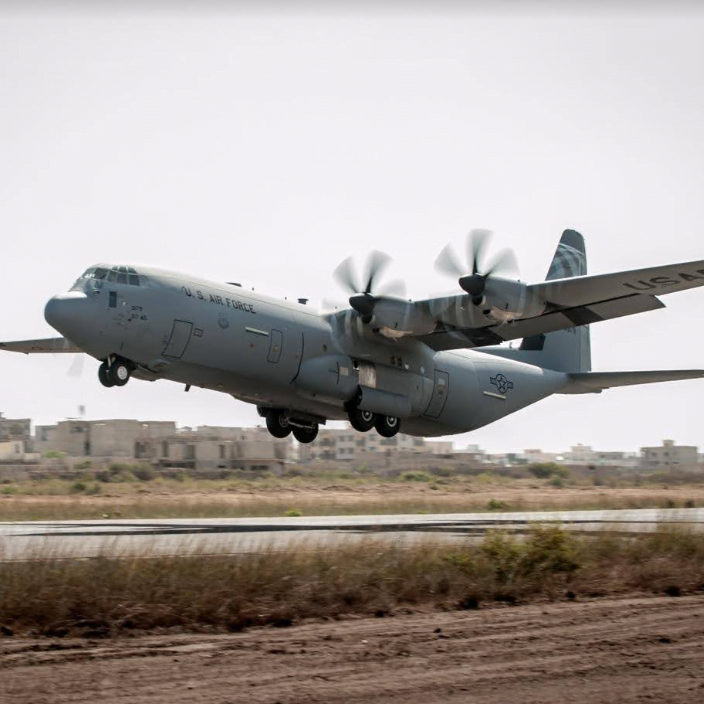
Whom do they protect? Security frames in military climate strategies
by Linus Mehl
Provenance of the research:
- Title of thesis: Whom do they protect? Security frames in military climate strategies
- Type of thesis: Undergraduate; B.A. in International Relations
- University affiliation: Technical University of Dresden & Institute for Peace Studies and Security Politics Hamburg
- Research timeframe: January – March 2023
About your work:
1. Abstract/Summary:
The paper explores the nexus between climate change and security by examining the process of securitization and its manifestation within the military domain. To establish the theoretical foundation for the analysis, I delve into the interplay between climate and security, emphasizing the securitization of climate change as a central concept. This theoretical framework underpins the development of a coding scheme used for the subsequent analysis. By conceptualizing the military’s role in addressing climate security, I pave the way for an in-depth examination of how climate change is securitized within the strategies of national militaries.
The analysis focuses on the Climate Security Strategies of eight distinct Western national militaries, with particular attention to the identification of threats, the objects of protection, and the military responses to climate change. Through this comprehensive examination, I aim to unravel the mechanisms by which climate securitization is operationalized within military doctrines. As publishing Climate Security Strategies has only started recently within the military administrations, this study is the first to address these strategies and to use them in order to provide an overview of current climate security frames in Western militaries.
The findings of the analysis reveal that national military administrations predominantly frame climate security as a matter of national security. In doing so, they not only perceive climate change as a potential threat but also recognize its role in fostering lower-level instabilities. The responses articulated within these strategies predominantly revolve around adapting the military apparatus to safeguard the nation and ensure the successful execution of missions under diverse environmental circumstances. Consequently, the study provides support to the critique that militaries frame climate security in a way that disadvantages individuals and the ecosystem compared to the national state when preparing for and reacting to climate change consequences.
2. What were the most important or surprising findings of your work?
The study reveals that despite an increased awareness of climate change threats, military administrations predominantly prioritize national security concerns when addressing climate security. This is reflected in their strategies and actions, with national objectives taking precedence over human and ecological security perspectives.
Assessing the military’s discourse on climate security has shown that vulnerable groups, primarily located in the global south and disproportionately affected by climate change, are often framed as a threat rather than being recognized as the ones threatened by climate change. This framing can lead to security measures that further harm these vulnerable populations, such as rigid state protection against migrants at external borders.
The findings call for attention to the influence of securitizing actors which is subject to unequal power relations on who has the resources to dominate the discourse. The findings urge for a broader perspective of climate security that goes beyond national security alone to address the needs of vulnerable individuals, communities, and ecosystems.
3. What did you struggle with during the research and/or writing process, and how did you overcome these issues?
Managing your time and your research steps is challenging. Especially if you are not used to writing longer papers, it can feel overwhelming. If you have the option, being in contact with your advisors on a regular basis and/or talking with colleagues about your research project can really help to not lose track and to be able to reflect on your ongoing project.
4. What are you doing now, and what are your plans for the coming year?
I am currently pursuing a master’s degree in International Development with a concentration in Environment and Sustainability at Sciences Po Paris. My aim is to work on climate policies in the context of global and national inequalities and different vulnerabilities to climate change. I am also working with the UN Special Rapporteur on Human Rights and Extreme Poverty on poverty reduction in the context of increasing inequalities and the planet’s boundaries.
5. Following the above, did your research impact those plans in any way?
During the research for my thesis, I became interested in power relations in the climate policy field. This does not only include the fact that actors such as militaries in the security field try to dominate the climate security discourse but extends to global power inequalities when it comes to enforcing climate action. In this sense, my research made me start to engage in my current research projects with this broader perspective on inequalities affected both by climate change and climate polices.
5. Do you have any advice for people who are undertaking this type of research?
Particularly the field of climate security is evolving very quickly at the moment. Therefore, it is essential that you are aware of this when starting your research because findings from a few years ago can already be outdated. At the same time, as there is so much going on, you should spend enough time focusing on your literature review trying to understand the different streams within climate security and their development over the last few years. While this can make it more challenging, it also means that you are at the forefront of an ongoing academic debate which is very exciting.
Author Bio: Linus is a student of International Development with a concentration in Environment and Sustainability at the Paris School of International Affairs (Sciences Po Paris). Having grown up in Stuttgart (Germany), he studied International Relations at the Technical University of Dresden, Sciences Po Bordeaux and the University of Bologna. During his studies, he started to focus on climate issues from political, economic and legal perspectives. Working on security studies, he became interested in the field of climate security. After interning at the Institute for Peace Research and Security Policy Hamburg, he decided to write his thesis on military involvement in climate security. At the moment, he is working within the Sciences Po Law Clinic for the UN Special Rapporteur on Human Rights and Extreme Poverty assessing mechanisms to enforce state compliance with greenhouse gas reduction targets.



